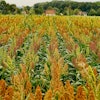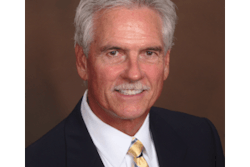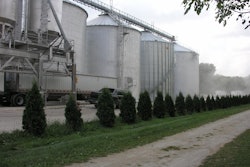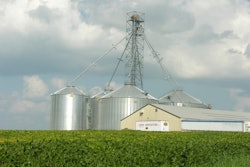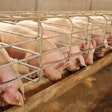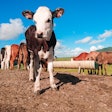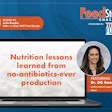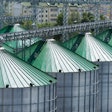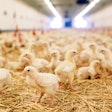When drawing up the plans for creating its Distance Education curriculum, GEAPS is in an enviable position. It doesn't need to engage the services of expensive consultants; instead, GEAPS' staff and distance education committee look to the GEAPS membership itself for answers.
"We actively solicit input from the membership on the issues and topics that matter to their business, and the educational needs that need to be met," says Mike Kiel, director, Grain Operations, the Andersons, and chairman of GEAPS' Distance-Education Program Oversight Committee. "If the membership response reveals a strong need in a specific area, we begin the curriculum development process."
This process typically involves a quick polling of the membership to see who has expertise in a given area and, most importantly, whether these people have time to devote to creating a program. Then, once a group takes ownership of a specific subject, the group creates a working outline of 10 topics, which is presented to the DEPOC for review and input and it's at this juncture, Kiel points out, that the programs really take shape.
"Once an outline is okayed, team members build a rough draft of the individual sessions which is run through the committee and our partners at K-State, to ensure its of high academic and educational value," Kiel explains. "After final revisions, the curricula endure another peer review and added to the list of available course offerings. All told, the entire process can take anywhere from 12 to 18 months from concept to execution."
Safety a common theme Registration is now open for "Safety Management of Grain Facilities," a distance-education course offered by GEAPS and Kansas State University. The five-week, 10-lecture course, which begins Jan. 19, focuses on how to mitigate the primary safety risks in grain handling facilities. The course (GEAPS 540) was developed by grain-industry safety professionals for grain operations management, safety-committee members, maintenance staff, and others who have responsibilities for risk control at grain and processing facilities.
"The course offers a lot of very solid basic training and will benefit anyone who needs to know how to reduce safety risks at grain facilities," said Mark Daniels, director of Health and Safety at CHS, Minneapolis, and GEAPS International president. "It is an excellent way for companies to upgrade the knowledge and skills of their safety people, especially those on a learning curve."
Like all GEAPS-KSU courses, "Safety Management" is designed for convenience. CDs with course "lectures" are mailed to participants, who then engage in a user-friendly but structured Web-based curriculum developed and administered by KSU. Students follow an online syllabus, working through each course lesson in sequence, and taking quizzes to make sure the material has been mastered. Although students must complete the courses within the specified period, they're free to do so on their own schedules-day or night, seven days a week.
"Safety Management" lectures include: Safety Program Overview, Lockout/Tagout, Walking and Working Surfaces, Confined-Space Entry, Developing an Emergency Response Program, Fires and Explosions, Contractor Safety, Rail and Truck Safety, Agricultural Chemical Safety and The Dangers of Flowing Grain.
Students who complete the course receive one continuing education unit from Kansas State University and a certificate from GEAPS-KSU. For more information, or to register, go to www.geaps.com/dist_learn/index.cfm.
GEAPS Exchange Focuses on Grain-Operations Safety
GEAPS Exchange 2009 in St. Louis will offer more than 30 hours of focused educational programming, and grain-operations safety will be a primary focus. The Exchange, set for Feb. 28 through March 3, will offer six 45-minute-long sessions on safety-related topics, plus a morning-long workshop on grain-bin engulfment.
The workshop, to be held Sunday, March 1, will cover the main causes of engulfment, as well as rescue techniques. However, the program will also become personal. Three people who were buried in grain and then rescued will relate their experiences.
"Despite concerted efforts by the industry to limit engulfment dangers, people in our industry continue to become engulfed, and die," said Kathy Reading of Seedburo Equipment Co., chair of GEAPS Educational Programming Committee. "Members told us that the GEAPS Exchange needed to cover this topic in a significant way, and so that is what we're going to do.
"We hope this workshop serves as a catalyst for members of the audience to put a rescue plan together, get some training, involve their local fire and rescue departments, and be better prepared should it happen to them or at their facility."

